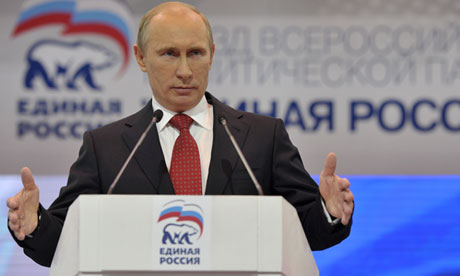EMT
Platinum Member
- Jan 13, 2010
- 14,483
- 15,308
- Thread starter
- #41
Arab League sanctions for Syria
The Arab League has voted to suspend Syria from its meetings and impose sanctions against Damascus over its failure to end a government crackdown on protesters. It asked member states to withdraw their ambassadors, and urged Damascus to end violence against protesters. The vote came after Syria ignored an Arab League proposal envisaging the start of dialogue with the opposition.
But Syria's representative said the decision violated the league's charter. Youssef Ahmed told Syrian state TV said it showed the league was "serving a Western and American agenda". The Arab League proposals - accepted by the government of President Bashar al-Assad - include the release of prisoners, the withdrawal of security forces from the streets and talks between the government and opposition. But the violence has continued, with the city of Homs bearing the brunt, say human rights activists. Twelve died on Saturday.
US-based Human Rights Watch (HRW) issued a report this week documenting allegations of torture and unlawful killings in the city, and called on the Arab League to step up pressure on Damascus. President Assad has sought to put down the protests since March. The UN says more than 3,500 people have died in the protests so far.
'Concern for Syria'
Eighteen Arab League member states voted at the Cairo meeting to suspend Syria, with Syria, Lebanon and Yemen voting against and Iraq abstaining. The BBC's Jon Leyne in Cairo says the decision is the most that anyone could have realistically expected from the Arab League. It is a huge blow to Syria's pride, and could also be a real practical blow to its leaders, our correspondent adds. But opposition groups are already calling for more action, he says, including a no-fly zone.
Qatari Prime Minister Sheikh Hamad Bin Jassim said the suspension would take effect on Wednesday, adding that talks would be held with Syrian opposition groups in three days' time. "We were criticised for taking a long time but this was out of our concern for Syria," he said, quoted by Reuters news agency. "We needed to have a majority to approve those decisions. "We are calling all Syrian opposition parties to a meeting at the Arab League headquarters to agree a unified vision for the transitional period."
BBC News - Arab League sanctions for Syria
The Arab League has voted to suspend Syria from its meetings and impose sanctions against Damascus over its failure to end a government crackdown on protesters. It asked member states to withdraw their ambassadors, and urged Damascus to end violence against protesters. The vote came after Syria ignored an Arab League proposal envisaging the start of dialogue with the opposition.
But Syria's representative said the decision violated the league's charter. Youssef Ahmed told Syrian state TV said it showed the league was "serving a Western and American agenda". The Arab League proposals - accepted by the government of President Bashar al-Assad - include the release of prisoners, the withdrawal of security forces from the streets and talks between the government and opposition. But the violence has continued, with the city of Homs bearing the brunt, say human rights activists. Twelve died on Saturday.
US-based Human Rights Watch (HRW) issued a report this week documenting allegations of torture and unlawful killings in the city, and called on the Arab League to step up pressure on Damascus. President Assad has sought to put down the protests since March. The UN says more than 3,500 people have died in the protests so far.
'Concern for Syria'
Eighteen Arab League member states voted at the Cairo meeting to suspend Syria, with Syria, Lebanon and Yemen voting against and Iraq abstaining. The BBC's Jon Leyne in Cairo says the decision is the most that anyone could have realistically expected from the Arab League. It is a huge blow to Syria's pride, and could also be a real practical blow to its leaders, our correspondent adds. But opposition groups are already calling for more action, he says, including a no-fly zone.
Qatari Prime Minister Sheikh Hamad Bin Jassim said the suspension would take effect on Wednesday, adding that talks would be held with Syrian opposition groups in three days' time. "We were criticised for taking a long time but this was out of our concern for Syria," he said, quoted by Reuters news agency. "We needed to have a majority to approve those decisions. "We are calling all Syrian opposition parties to a meeting at the Arab League headquarters to agree a unified vision for the transitional period."
BBC News - Arab League sanctions for Syria

